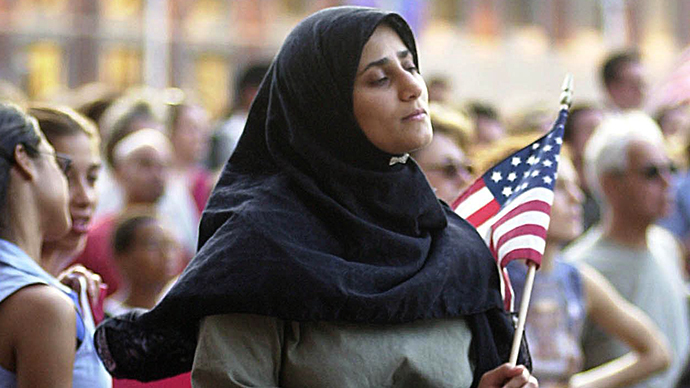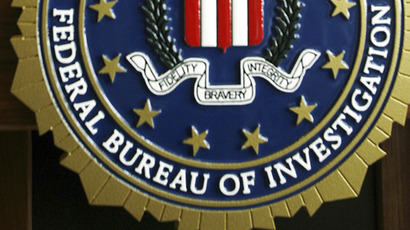ACLU says Muslims face more scrutiny for citizenship

US Citizenship and Immigration Services routinely screens immigrants for national security concerns, blacklists Muslims and has delayed applications of thousands of legal US residents for years, according to the American Civil Liberties Union.
The ACLU obtained documents about a government program that makes it more difficult – and sometimes impossible – for Muslims to gain naturalized US citizenship. Under the Controlled Application Review and Resolution Program (CARRP), federal immigration officials are instructed to find ways to delay and deny applicants from Arab, Middle Eastern, Muslim and South Asian countries.
To delay or deny US citizenship, officials will flag discrepancies or claim that they did not receive sufficient information from an immigrant, the ACLU reports.
“Your file goes into a black hole, and you’re stuck unless you have the money to hire a lawyer to sue the government,” Margaret Stock, an Alaska-based immigration attorney who reviewed the program, told the Wall Street Journal.
Using information the CARRP obtains from law-enforcement agencies, including the Federal Bureau of Investigation, officials determine whether or not an applicant is a “national security concern.” But the criteria for such a label is often broad and based on religion or origin. Attending a mosque that was subject to law-enforcement surveillance, for example, can cause an applicant to be blacklisted – even if he or she has lived in the US for decades.
“This policy is creating a secret exclusion to bar many people who are eligible for [citizenship] because… of their national origin or religion or associations,” Jennie Pasquarella, the ACLU lawyer who authored the report, told Mother Jones. “It’s doing this without the knowledge of the public, without the knowledge of applicants, and without, we believe, the knowledge of Congress.”
According to CARRP criteria, individuals who have exhibited “unusual” travel patterns, traveled through areas where terrorist activity is known to occur, or have acquaintances that have been flagged are considered national security concerns.
Kansas Republican Secretary of State Kris Kobach, who previously served as chief advisor to former US Attorney General John Ashcrof on immigration law, told the WSJ that this security is necessary to prevent another attack like the Boston Marathon bombing.
“Ultimately this is just about politics. They don’t want to be seen as having granted citizenship to somebody who’s going to be the next Boston bomber,” Pasquarealla told the Associated Press.
But the manual containing the criteria to label someone a “national security concern” was dated April 2009 – years before the Boston bombing occurred. And even if applicants are denied naturalized US citizenship, legal residents and green-card holders are still allowed to live in the US, which means the program is not directly preventing immigrants from entering the country.
“Before we learned about CARRP, we were seeing patterns of delays and denials, but nobody understood what was behind this,” Pasquarella said.
“By giving itself the authority to deny applications based on secret criteria that it never discloses, USCIS denies applicants the fairness they are due under the Fifth Amendment to the US Constitution and applicatory immigration regulations,” the ACLU report concludes.














